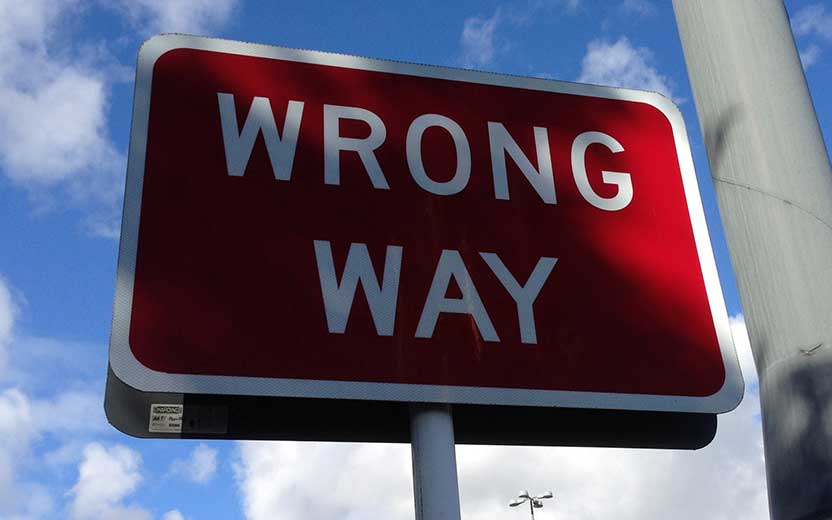By Marcus Fernandez
Living in Tampa allows you to avoid the dangers of driving in the snow and ice that winter storms bring to northern regions of the country, but that does not mean that you get to escape the driving risks caused by severe weather conditions. As a reminder, the National Oceanic and Atmospheric Administration anticipates an above-normal hurricane season, which runs from June through November 30.
Although typically associated with property damage and loss of life caused by powerful winds and flooding, the severe weather conditions hurricanes bring with them increase the risk of deaths and injuries for motorists who must drive in them. Adverse weather conditions cause, on average, more than 1.2 million motor vehicle crashes with 418,000 people injured and 5,000 fatalities.
Surprisingly, only a small percentage of vehicle crashes are due to snow, ice and other weather conditions typically related to winter weather. The vast majority of vehicle accidents happen on wet pavements and during rainfall, such as you would commonly encounter when forced to drive during a hurricane.
The best, and probably safest, way to ride out hurricane season is by staying indoors and avoiding unnecessary travel. If you must drive during a hurricane, here are a few severe-weather driving tips to keep in mind that may help you reduce the risk of an accident. Because you cannot always account for the negligence of other motorists, there is a section explaining what you should do in case of an accident to keep yourself safe and protect your right to recover damages caused by the other driver.
Be mindful of the dangers of driving in a hurricane
It’s worth repeating: Keep off the roads during a hurricane. Even if the rain has stopped, the weakest hurricane, which is a category 1, generates maximum sustained winds of 74 to 95 mph. Winds of that strength can topple trees and snap large branches from trees that can block roads and cause accidents when your visibility is impaired by wind-driven rainfall.
If you must venture out, check the news and weather before leaving and pay particular attention to reports of road closures due to debris or flooding. Plan your route to avoid roads that are or may be closed and avoid driving on bridges where high-winds and wet road surfaces could make it difficult to control your vehicle. The height of trucks, sport-utility vehicles and vans make them susceptible to being affected by strong winds that could cause a rollover accident.
Slow down and leave extra time to get to your destination
Driving at a slower speed than usual is essential during severe weather because rainfall and wet roads, combined with poor visibility, increase how long it takes to stop your car in an emergency. It takes longer for your car to come to a complete stop on a wet road than it does on one that is dry, so driving at a slower speed gives you more time to react when vehicles in front of you suddenly apply their brakes.
Do not drive on flooded roads
Avoid driving in areas where flood conditions exist. The movement of flood waters can cause loss of control or cause your car to be swept away.
If a roadway is covered by standing water, resist the temptation to drive through it. Only proceed unless you know its depth and can see what’s beneath the surface. Standing water may conceal a washed-out road or debris that could damage your car.
Know what to do at intersections with inoperable traffic signals
Inoperable traffic signals are common during hurricane season. If you come to an intersection where the traffic signal is inoperable, come to a complete stop. Treat the intersection as you would one with a four-way stop sign.
A flashing yellow signal means to proceed with caution while yielding to vehicles entering from other directions. Unless there is a police officer present to direct traffic, use the utmost caution and be prepared to yield.
Get your vehicle ready for the hurricane season
Some of the items to have in your car for use in a hurricane season emergency include:
- Flashlight and extra batteries.
- Road flares or reflectors.
- First aid kit.
- Cell phone and charger.
- Jumper cables.
- Drinking water and nonperishable snacks.
- Emergency blankets and rain ponchos.
When stocking your car for the anticipated bad weather, check to make certain that your spare tire is properly inflated. Confirm that the tools you’ll need to change a flat tire are in the vehicle.
What to do in case of a car accident during a hurricane
If your efforts to remain safe fail, here’s what to do at the scene of the accident. These tips will help avoid further injury and to protect your right to recover compensation.
- Check yourself and other occupants of your car for injuries. Moving around can make an injury worse. So, remain calm and check yourself and anyone else in your vehicle for injuries before attempting to exit the vehicle. Call 911 if anyone is injured or ask someone to do it for you.
- Report the accident to the police: The law in Florida requires that you call the police if the accident causes anyone to be injured or killed or if there is property damage in excess of $500.
- Remain at the scene: While waiting for police to arrive, do not stand in the road. Move to a sidewalk or behind a guardrail to be out of the way of passing vehicles.
- Document the accident scene. If you are physically able to do it, use your phone to take photos of the accident scene. Get the name and contact information of all drivers, passengers and witnesses. An easy way to do this is by taking a picture of the driver’s license of each person.
- Get medical attention. Unless you are immediately taken by ambulance, arrange to be examined by your doctor. Schedule the appointment as soon as possible to have your injuries evaluated.
- Contact a Tampa personal injury attorney. A personal injury attorney will explain your options for pursuing a claim for compensation. They can also help you to report the accident to your insurance company.
Avoid making statements to anyone other than police and emergency medical personnel. What you say can be used by the negligent party’s insurer to defend against your claim.
Contact a Tampa personal injury attorney
If you are injured in an accident, a Tampa personal injury attorney provides advice and representation for pursuing a claim for damages against the party responsible for causing the crash. Talk to an attorney as soon after the crash as possible to preserve you right to recover compensation.


